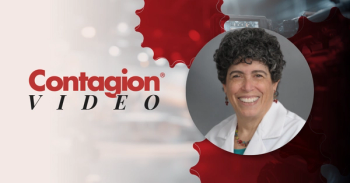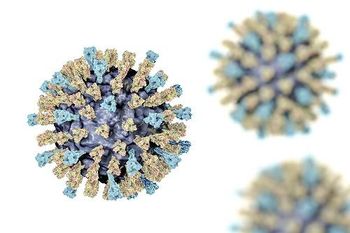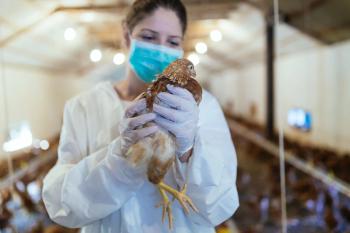
Studies Dispel the Myth That Twitter Is a Waste of Time for Busy Clinicians
John Nosta, BA: Isn’t there a lot of nonsense on Twitter?
Debra A. Goff, PharmD, FCCP: Absolutely.
John Nosta, BA: What’s the pushback that you get? For example, “I’m a clinician, show me the data.”
Debra A. Goff, PharmD, FCCP: Yes.
John Nosta, BA: “Show me a peer-reviewed clinical journal, and then I’ll read up on it on Twitter.”
Debra A. Goff, PharmD, FCCP: Right. I knew that would be a barrier. When I met Dr. [Benedict] Nwomeh, [MD,] I said, “Look, I’m going to try to start using Twitter to reach surgeons, and I need you to help me because you have this network of over 5000 surgeons. You’re my voice because they don’t know me. I’m not a surgeon, so I’m not going to have that instant credibility. Yes, I’m a health care provider, but I’m not a surgeon. I’m not in your circle. I need you to help me. Knowing people in medicine are evidence-based, we’re going to do this as a study. We’re not just going to do it and say, ‘We feel this works.’ That doesn’t work in medicine. We’re going to do it as a study.”
So we actually set it up as a study and published on it. It was fascinating. We actually did medical grand rounds at The Ohio State University Department of Surgery on Twitter. Those are coveted lectures planned 1 year in advance. But Dr. [E, Christopher] Ellison, head of surgery, understood the value. He understood what I was trying to accomplish. Surgeons need to use antibiotics. If a surgical procedure is done and no prophylactic antibiotic was given, your patient has a high probability of getting an infection that they can die from.
So surgeons are one of the highest users of antibiotics, [and] rightfully so. Antibiotic resistance is a moving target. When KPC [Klebsiella pneumoniae carbapenemase] occurs, which was nothing they learned about in medical school because it never existed back then, what is their vehicle to learn about this? I can’t give a lecture to 100 surgeons in real time. Twitter is the vehicle. So it’s not the end-all, it’s just another communication tool that reaches them in a very different way.
John Nosta, BA: Let’s keep going because this is so fascinating.
Debra A. Goff, PharmD, FCCP: Yes.
John Nosta, BA: So there’s a method to the madness. It’s not just your word or anecdotal data. You actually did a study on this?
Debra A. Goff, PharmD, FCCP: We did. We set it up as a study. We had our surgeons volunteer to participate in active tweeting. I, as an infectious disease expert, along with our surgical and clinical pharmacists who had that network of surgeons, tweeted relevant infectious disease topics to a surgeon. There are a lot of infectious disease topics, but a lot of them don’t really apply to a surgeon.
John Nosta, BA: Before you go there, I’m going to do the eye roll for you.
Debra A. Goff, PharmD, FCCP: OK.
John Nosta, BA: You recruited surgeons to do active tweeting?
Debra A. Goff, PharmD, FCCP: Yes.
John Nosta, BA: Let’s talk about recruitment. We know that trial recruitment for patients is hard. Trial recruitment for physicians on Twitter must have been brutal. Was there a take?
Debra A. Goff, PharmD, FCCP: Absolutely. Well, remember that the chair of [the] Surgery [Department] was my advocate. There’s a lot of power.
John Nosta, BA: That’s good.
Debra A. Goff, PharmD, FCCP: When the head of surgery says, “You all need to participate in this,” there’s a hierarchy. But actually, many of the surgeons at Ohio State University were already on Twitter.
John Nosta, BA: Did you find that it was younger surgeons, older surgeons, women, men?
Debra A. Goff, PharmD, FCCP: I constantly hear, “I’m not 20. This is for the younger generation.” Yes, they grew up with these tools. We did not. But my head of surgery is age 71. He realized this was a vehicle that he could learn and engage with others in a different setting. But yes, this included one of the younger surgeons who would never be asked to do surgical grand rounds. That’s a very prestigious role at a university, and that’s exactly what he stated. He was the most active and really got the division on it. Christian Jones is probably in his 30s. He was a brand-new surgical attending. He would never be asked to do surgical grand rounds. But our grand rounds at Ohio State University included Christian Jones, Dr. Ben Nwomeh, myself—as a pharmacist, which is sort of unheard of—and Dr. Chris Ellison, who is head of surgery. In essence, we had 4 generations to dispel….
John Nosta, BA: Did you kind of do that, or did it just happen?
Debra A. Goff, PharmD, FCCP: It just sort of fell that way.
John Nosta, BA: Wow, isn’t that amazing?
Debra A. Goff, PharmD, FCCP: It really was. But they all understood the power of using Twitter as a communication tool in real time. If you have a bone marrow transplant, and you’re in my hospital for 30 to 60 days recovering, people unfortunately acquire infections in hospitals. This is not because we’re doing bad things but because people don’t wash their hands.
John Nosta, BA: That’s where the bugs live.
Debra A. Goff, PharmD, FCCP: Exactly, that’s their home. So you might acquire one of these multidrug-resistant gram negatives. I’ve got a handful of effective antibiotics to select from. That handful is dwindling every day. It’s fewer and fewer. How am I going to teach oncologists in real time about any new antibiotic that comes to the market? They’re controlled by antibiotic stewardship programs. We tell them, “You can’t use these.” We’re going to control them. That’s good, but we want to make sure they’re used responsibly. It’s a little unsettling when you’re calling a physician stating, “Your patient has Klebsiella pneumoniae carbapenamase.” Or “Your patient has this gram-negative Enterobacter.” Or I say, “You’ve got this drug-resistant pseudomonas infection.” And they’re like, “I don’t understand. I’m going to recommend that you use this new antibiotic that you know zero information about.”
John Nosta, BA: All I know is about beta-lactamase. Carbapenemase is not even on my radar, right?
Debra A. Goff, PharmD, FCCP: But the point is, some of our physicians don’t read Infectious Diseases. That’s not their expertise, just [as] I’m not a surgeon. I’m not going to read journals on the latest surgical tools.
John Nosta, BA: They don’t want to, right?
Debra A. Goff, PharmD, FCCP: I don’t use it. But every physician, every nurse practitioner, and every clinical pharmacist that prescribes an antibiotic has to have knowledge to prescribe them responsibly.
John Nosta, BA: Sure.
Debra A. Goff, PharmD, FCCP: And how do you convey knowledge in real time, as we have outbreaks literally occurring that we’ve never seen before?
John Nosta, BA: Well, it’s funny. We talk about the diffusion of innovation. We often call them “viral.”
Debra A. Goff, PharmD, FCCP: Right, it’s going viral.
John Nosta, BA: There you have it. It just seems to be such an interesting connection.
Newsletter
Stay ahead of emerging infectious disease threats with expert insights and breaking research. Subscribe now to get updates delivered straight to your inbox.
































































































































